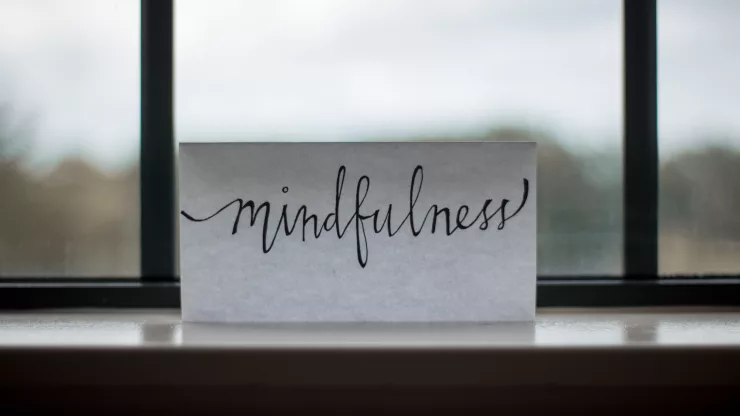Jump to Section
The Importance of Work-Life Balance
In today’s fast-paced world, maintaining a balance between work and personal life has become increasingly challenging. Many people struggle to find a balance that allows them to fulfill their responsibilities at work and enjoy their personal lives. Work-life balance is essential for a healthy and fulfilling life, and it can have a significant impact on our happiness and well-being.
Achieving work-life balance means finding a way to manage the demands of work and personal life effectively.
It involves setting priorities, managing time, and creating boundaries between work and personal life.
Finding a balance that works for you can help you feel more fulfilled, energized, and motivated, both at work and in your personal life.
The Link Between Work-Life Balance and Happiness
Work-life balance is closely linked to happiness. When we feel overwhelmed by work or personal responsibilities, we may experience stress, anxiety, and burnout.
These negative emotions can affect our mood, relationships, and overall well-being.
On the other hand, when we have a good balance between work and personal life, we feel more satisfied, fulfilled, and happy. We have more time to pursue our passions, hobbies, and relationships outside of work, which can bring us joy and a sense of purpose.
Studies have shown that people who have a good work-life balance are more likely to report higher levels of happiness and life satisfaction. In a survey conducted by the Society for Human Resource Management, 89% of employees said that work-life balance is important to their overall job satisfaction.
The Impact of Work-Life Balance on Well-being
Work-life balance not only affects our happiness but also our overall well-being.
When we are stressed, anxious, or burnt out, our physical and mental health can suffer.
We may experience symptoms such as headaches, fatigue, insomnia, and depression.
On the other hand, when we have a good work-life balance, we are more likely to have a healthy lifestyle, which can benefit our physical and mental health. We have more time to exercise, eat well, and get enough sleep, which can improve our energy levels, mood, and overall health.
Studies have shown that work-life balance is essential for preventing burnout and promoting mental health. In a survey conducted by the American Psychological Association, 60% of workers said that work-related stress had a negative impact on their physical and mental health.
Strategies for Achieving Work-Life Balance
Achieving work-life balance requires a conscious effort to manage our time and priorities effectively. Here are some strategies that can help:
- Set boundaries between work and personal life. For example, avoid checking work emails or taking work calls during your personal time.
- Prioritize your tasks and focus on the most important ones. Don’t try to do everything at once.
- Delegate tasks when possible. Ask for help from colleagues or family members.
- Take breaks and make time for self-care activities such as exercise, meditation, or hobbies.
- Learn to say no to requests that don’t align with your priorities or values.
Overcoming Obstacles to Work-Life Balance
Achieving work-life balance can be challenging, especially when we face obstacles such as heavy workloads, long commutes, or family responsibilities. Here are some tips for overcoming these obstacles:
- Communicate with your employer about your needs and priorities. For example, you may need flexible working hours or the option to work from home.
- Use technology to your advantage. For example, you can use productivity apps to manage your tasks or video conferencing to avoid long commutes.
- Get support from family members, friends, or colleagues. For example, you can ask for help with childcare or share household chores with your partner.
- Be realistic about your expectations and don’t try to do everything perfectly. Accept that some days will be better than others, and that’s okay.
Work-Life Balance: A Path to Fulfillment and Joy
Achieving work-life balance is not just about managing our time and priorities. It’s about creating a fulfilling and joyful life that aligns with our values and passions.
It’s about finding meaning and purpose in both our work and personal lives.
When we have a good work-life balance, we can enjoy the best of both worlds. We can pursue our professional goals and aspirations while also having time for our personal interests and relationships.
We can feel fulfilled, energized, and motivated, both at work and in our personal lives.
FAQ
How can I tell if I have a good work-life balance?
You may have a good work-life balance if you feel satisfied and fulfilled with both your work and personal life. You have enough time and energy to pursue your interests, hobbies, and relationships outside of work, and you don’t feel overwhelmed or stressed by your work responsibilities.
What are the consequences of a poor work-life balance?
A poor work-life balance can lead to stress, anxiety, burnout, and other negative emotions. It can also affect your physical and mental health, relationships, and overall well-being.
How can I achieve work-life balance if I have a demanding job or family responsibilities?
Achieving work-life balance can be challenging, especially if you have a demanding job or family responsibilities.
However, there are strategies you can use to manage your time and priorities effectively, such as setting boundaries, prioritizing tasks, and delegating responsibilities.
You may also need to communicate with your employer or family members about your needs and priorities.

With a deep passion for personal development, Ben has dedicated his career to inspiring and guiding others on their journey towards self-improvement.
His love for learning and sharing knowledge about personal growth strategies, mindfulness, and goal-setting principles has led him to create My Virtual Life Coach.
Contact Ben at [email protected] for assistance.




